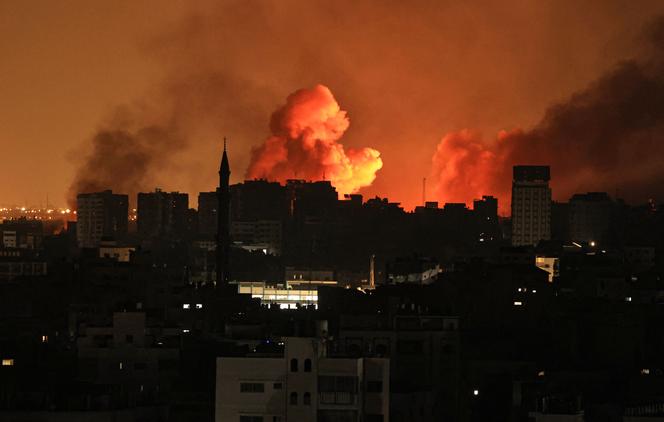


More than 423,000 people have been forced to flee their homes in the Gaza Strip, the United Nations said, following heavy Israeli bombardments in retaliation for Hamas's attacks. As of late Thursday, October 12, the number of displaced in Gaza rose by 84,444 people to reach 423,378, the UN humanitarian agency OCHA said in a statement sent on Friday.
The announcement came as Israel pounded the Gaza Strip in response to Saturday's surprise attack, the deadliest since the country's creation in 1948. Hamas gunmen swept into small towns, kibbutzim and a music festival in the desert, indiscriminately killing more than 1,200 people and taking about 150 hostages into Gaza. Israel has retaliated by raining air and artillery strikes on Gaza – a densely populated enclave of 2.3 million people, flattening buildings and killing 1,537 people according to the Gaza Health Ministry.
Israel has also prepared for a possible ground invasion of the Palestinian territory. "Heavy Israeli bombardments, from the air, sea and land, have continued almost uninterrupted," OCHA said in its update. "Multiple residential buildings in densely populated areas have been targeted and destroyed during the past 24 hours."
The UN also issued an emergency appeal for $294 million to address "the most urgent needs" in Gaza and the occupied West Bank. The funds would be used to help more than 1.2 million people, the UN Office for the Coordination of Humanitarian Affairs said, stressing that aid groups do not have "the resources required to adequately respond to the full range of needs of vulnerable Palestinians."
After Israeli strikes on water infrastructure and the cessation of water supplied by Israel to the enclave since Sunday, "most residents in the Gaza Strip no longer have access to drinking water from service providers or domestic water through pipelines," OCHA said. "UNICEF reports some have already begun drinking seawater" in response, it added.
Additionally, "health facilities are overwhelmed, medical stocks are in short supply and access to hospitals and medical care is being hindered by the ongoing hostilities and damaged roads." Gaza is home to some 50,000 pregnant women – 5,500 of whom are due to give birth in the coming month – "who are struggling to access essential health services as healthcare workers, hospitals and clinics come under attack."
While much of the focus has been on Gaza, "the situation in the West Bank remains tense," OCHA said, citing confrontations between the military and Palestinians, "settler violence" and "extensive closures... imposed around West Bank cities" impacting access to essential services.
